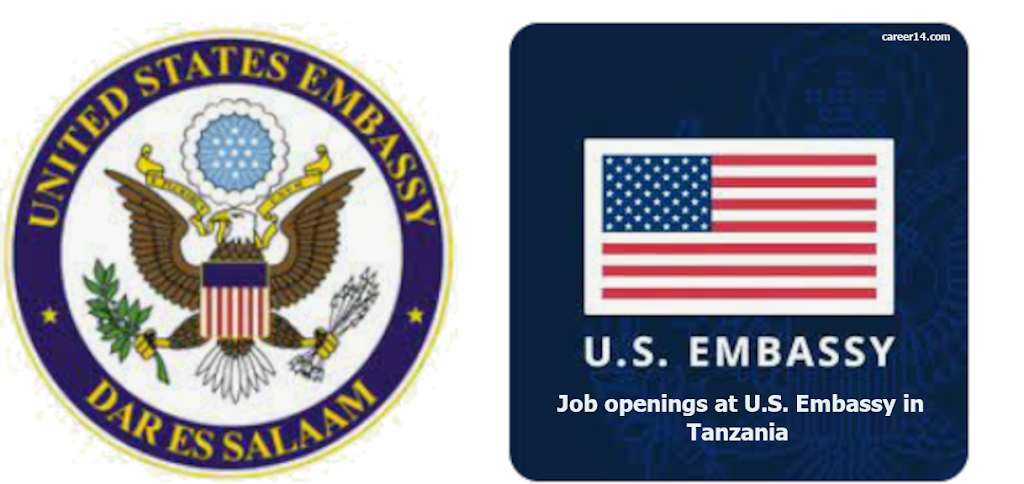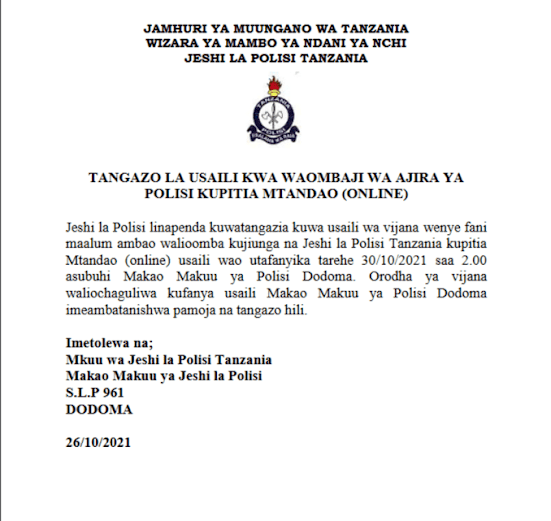police tanzania, police tanzania force, tanzania police force.go.tz, usail jeshi la police, walioitwa kwenye interview, call for interview at police Force, Call For Interview at Police Force Tanzania 2021 Pdf
Call For Interview at Police Force Tanzania 2021 Pdf
Welcome to this article about police jobs 2021 Tanzania. The Tanzania Police Force was officially established on 25 August 1919 by an English Government proclamation published in Government Gazette No.
But the army was legally established by the Police Force Act of 1939 [THE POLICE FORCE AND AUXILIARY SERVICES ACT OF 1939) PRINCIPAL LEGISLATION. This law is the one that applies to this day although it has been revised from time to time.
The Army Headquarters according to the announcement was in Lushoto District in Tanga Region under the leadership of Major S.T Davis.
Later in 1921 a group of European Police Inspectors arrived in Tanganyika and set up a special Police Training School in Morogoro Region to meet their needs and find enough skilled Soldiers.
Despite having black soldiers who trained but still the soldiers remained with the lowest rank of Police as all the top ranks were given to the White Soldiers.
CHECK THE GOVERNMENT ADS BELOW ABOUT POLICE JOBS 2021
In terms of external oversight, the Office of the Ombudsman or Permanent Commission of Enquiry, which is an independent body, retains the power to investigate incidents of corruption and abuse of power by public authorities, including members of the police, and make recommendations to the President.
The Constitution outlines the jurisdiction of the Ombudsman, which includes the power to investigate members of the Tanzanian and Zanzibar government, members of commissions and any other public authority, excluding the President. In addition, the Offices of the Attorney-General and Auditor-General are empowered to audit the accounts of government and examine records and accounts.
Furthermore, Tanzania’s human rights commission, which is referred to as the Commission for Human Rights and Good Governance (CHRAGG), is responsible for investigating human rights abuses, which includes allegations of police brutality, corruption, and violations of women’s rights, as well as incidents of maladministration.
Although CHRAGG’s independence has been questioned, civil society organisations in Tanzania have commended CHRAGG for making valuable contributions to human rights efforts, including the training of high-level police officials. These organisations include the Legal and Human Rights Centre (LHRC), the Centre for Human Rights Promotion, and the Tanzania Women’s Lawyers’ Association, which are also actively engaged in police oversight issues.








